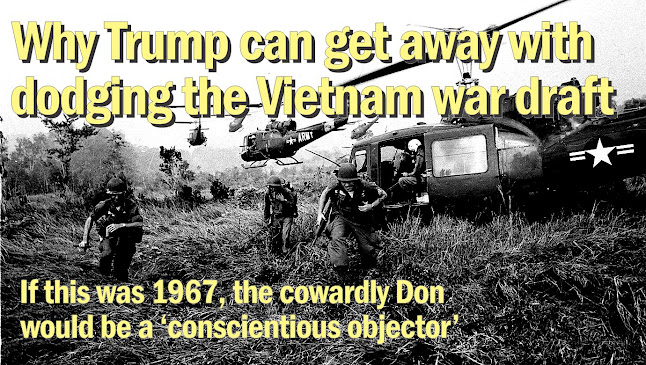Ask no further and say not another word. That is exactly what's wrong about the decision by one man to transform the UP campus into a "live-fire" exercise training ground for military intelligence operatives. If the UP campus--or any university for that matter--were a recruitment ground for the CPP-NPA, then it is precisely the wrong place to be if you want to protect Filipino students from getting killed in anti-insurgency encounters with the military. Those encounters do not take place in campuses--not even UP.
He is not preventing any crime, either. Granted it is criminal, under the Revised Penal Code, to take up arms against the government--by rebellion, insurrection, sedition or coup d'etat. You can commit these crimes practically anywhere in the Philippines, not only in university campuses--as if it had ever been, which it had never been, throughout the entire history of the Philippines.
More importantly, these are crimes when--and only when--actually consummated. There is no such thing as "attempted rebellion" or "frustrated rebellion." There is only consummated rebellion--and mind, you, if you succeed in rebellion it has no penalty. Successful rebels become the government. Needless to say, why they would they be crazy to punish themselves? Failed rebels become convicts of an ordinary crime, they go to an ordinary jail to live ordinary convicts' lives for as long as the prison sentences imposed upon them.
The Revised Penal Code also talks about "conspiracy to commit rebellion", etc. as well as "proposal to commit rebellion," etc. However, do not be misled by the words "conspiracy" and "proposal"--they do not connote stages or phases of execution in committing the crime of rebellion, etc. They are crimes in themselves, and are also incapable of partial execution. This means there is no such thing, either, as "attempted/frustrated conspiracy to commit rebellon" etc. or "attempted/frustrated proposal to commit rebellion," etc.
If ever UP students get recruited into the CPP-NPA--and I do agree a good number of them have been in the past--at the point of recruitment, they have not yet committed any crime. Although, yes, they are certainly well on the precise path to doing so. The choice whether to act in accordance with, or in defiance of the existing law is entirely up to them. It is their choice to make, understanding that if you do the crime, you do the time.
So the question is simple: are Filipino students in UP and other universities intelligent enough to make that decision? Do we--can we--trust them to make that decision? Have they learned enough social philosophy, political science, history, ethics and cultural values in the classroom to make an informed judgment of what and how to contribute to the advancement (or de-propagation) of any political theory or system of thought? Isn't that what school and education mean--to acquire knowledge and then translate it into policy or practice?
Before, you can answer these questions, realize first that these questions are rife with arrogant assumptions. For one, when we come evaluating whether they have learned enough in the classroom, we must first ask: were they taught enough to begin with? Or were there restraints applied against any teaching method? Were there academic regulatory filters put in place to sift curriculum content? Did the State handicap the faculty selection method to stack the odds against freethinkers? Are there factors in the learning environment that impaired its efficacy to deliver unfiltered education--or to use academia's favorite phrase "holistic knowledge"-- that they need? This is the essence of academic freedom--not just all that tired and surreal lip service and frivolous motherhood talk about constitutional guarantees, civil liberties yada yada.
Academic freedom is really as practical a matter as this: have we done everything we can do to enable and empower our youth to know everything so that they possess the competence to make decisions with generational impact on them? The future that they are preparing for in school is theirs, not ours.
It's not even a question of do we trust our youth to have learned enough but, rather, can WE honestly say WE have allowed them to learn everything including--or perhaps, especially--some things WE do not want them to know?
Or should we all--like Secretary Lorenzana--refuse to let our youth graduate from nursery and kindergarten (no matter how you term it, such as "post-graduate" or "doctorate" if it languishes in ground level basics, it's as advanced as Sesame Street) and decide FOR THEM what we think is GOOD FOR THEM and make sure they only think along concepts and principles SAFE FOR THEM?
In short, should we all--as Secretary Lorenzana would like us to--THINK FOR THEM?
It's important that we all understand the significance of our answers. Because if we don't, we will unwittingly throw our country, our society, ourselves back to the Joseph McCarthy Era. We have not erased from memory that shameful period in post-modern American political history--when lawmakers held Congressional investigations to smoke out people in the entire government apparatus, civil service, business community, industry and commerce (and, yes, even the armed services, police and military) who are alleged communists and closet-communists.
Joseph McCarthy--that discredited Republican US Senator from Wisconsin channeled by latter-day demagogues such as Donald Trump--would have a new persona: Delfin Lorenzana. He would be the one vetting who is "Red," who is a "Communist." And just so he doesn't have to do all the work--for it is truly a gargantuan task--he would be the one to draw up the criteria for identifying a "true Communist."
Instead of finding common ground as a people, and having our sentiments and opinions resonate into an inclusive national philosophy, should we just conveniently surrender a destiny and future that is not ours to the judgment of one man? Shall we sit in the sidelines as disinterested spectators watching that one man apply his value system alone, and trusting him to "protect the rest of us" from our own apathy?
As in the McCarthy persecution days, everybody would be pointing fingers at each other, going ape crazy over who is patriotic and who is not. But it will not be an orderly or equal exchange of accusations. It will be 89-million Filipinos accusing, and one man pronouncing judgment. Soon enough, we will get fed up with that one man, and will depose him, substituting in his place another man with fresher pontifIcations, a bigger halo above his sanctimonious head. Round and round we go. Believe me, the last thing it will achieve, if at all, is ending the insurgency. On the contrary, a chaotic free-for-all like that is the slippery slope towards a full-fledged civil war that would make the insurgency problem look as harmless as a children's birthday party.
We cannot let one unelected official think for all of this generation, and skew the academic prospects for future generations yet unborn. One appointive executive official cannot anoint himself protector of millions of capable intellectuals who, by plurality alone, possess a sum total of knowledge and understanding greater than his.
This is not a denunciation of Secretary Lorenzana. I'll give you another example of what happens when only a few self-appointed geniuses full of good intentions try to think for others. That Agreement itself between the UP and the DND to keep military forces off campus is a totally useless superfluity. I'm wondering why Secretary Lorenzana is even bothering himself with it. Or even UP for that matter.
An agreement is a contract and no contract is permanent. If you reduce the issue of protecting academic freedom into a simple contract that is not immune from abrogation, then you admit that under some circumstances it should be possible and defensible to stop protectng that freedom--"if the price is right" philosophically speaking.
That's what's wrong with that overrated Agreement, both in the construction and deconstruction.
You cannot ASK for academic freedom, and no one can GIVE it to you. The moment you ask permission to think freely, you just bargained away the very freedom you seek.
So how do you avail of academic freedom? You just go ahead and exercise it --unreserved, unqualified, unfettered, undiluted and uncompromised--and be ready to defend yourself when challenged. Not every right is created by the 1987 Constitution. That should shock no one--similarly, the right to life, liberty and social justice is not created by the 1987 Constitution--or any constitution. The right to life has existed long before law itself. Universal good--authored by the Universal God -- in fact, requires that all constitutions throughout the world GUARANTEE these rights, which they did not create. Defining it is not creating it. Sometimes defining something is just an acknowledgement that it precedes you existentially. If rights can exist before--or even without--a constitution, with as much reason academic freedom can and does exist with or without that UP-DND Agreement.
So you see, restoring the UP-DND Agreement will do UP no good--and no worse. No academic community could know better than UP. All the time that agreement was in place, UP was crawling with undercover military spies. They probably even outnumber CPP-NPA recruiters if there were any. And these military spies cannot complain that their job of collecting "intel" is hard.
You have to be the dumbest military intelligence agent to encounter difficulty soaking in all the free-thought discussions in academic circles all around the UP System. It's all over the place--in their theses, term papers, classroom reports, school organs, organizational bulletins, plastered on their walls, silkscreened on their shirts and quite commonly in this day and age probably even tatooed somewhere on their bodies. If that much information torments your brain, they summarize them in shorter phrases in their rally slogans, protest placards--and even bumper stickers if your maximum word absorption limit is five. How dense can you get?
Military intelligence--long held to be a contradiction in terms--needs to realize that student activism is not a clandestine activity in this community of academics and intellectuals. They wear it on their sleeves.
Asking for a little more leeway to operate within the university campus, on the part of the DND, is more an admission of incompetence and lack of imagination than a grievance against operational restrictions. Really, Secretary Lorenzana shouldn't care if there was that agreement or not--and UP should care even less.
That said, arguably, reinstating the agreement would do some good for Secretary Lorenzana. It will give him an opportunity to shed off the Superman costume he accidentally donned because, frankly, it is not growing on him. All it is doing is making him look like a fish teaching birds how to fly. Ⓒ 2021 Joel R. Dizon
NOTE FROM JOEL: Hi, folks! Recently, I started a YouTube channel which is called "Parables and Reason" It is kind of similar to this blog content-wise. You can check out my channel by clicking the link below:
Joel R. Dizon - PARABLES AND REASON





No comments:
Post a Comment